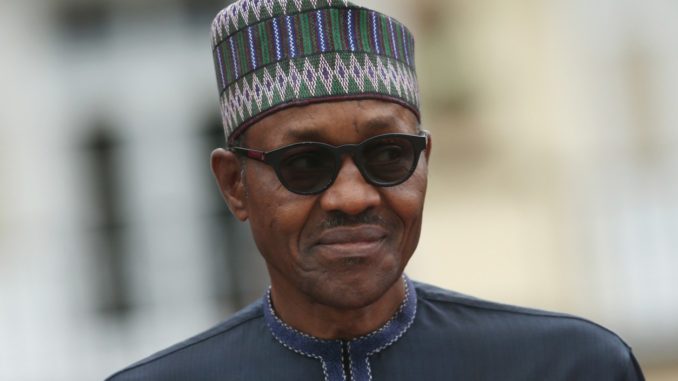
When President Muhammadu Buhari sent a request the other day to the National Assembly for virement of funds for the purpose of next year’s general elections, Nigerians were justifiably aghast. In government business, his request was and is not new but the huge amount involved is cause for concern.
To ask the National Assembly to vire the sum of two hundred and forty-two billion naira (N242bn) from the existing budget, only about seven months to the said elections, suggests poor or lack of planning. It also smacks of insensitivity to the plight of most Nigerians. Democracy must be deepened with well-conducted free and fair elections but this should not be an avenue for waste and corruption.
Did the Independent National Election Commission (INEC) not know elections would be conducted in February 2019? The same question goes for the requests of the Department of State Security (DSS), Nigeria Police and Nigeria Immigration Service (NIS). How come these agencies did not provide for elections in their budget submissions at the beginning of the year? Are they seizing the 2019 election frenzy to request for funds that would ultimately be diverted to other purposes and pockets of individuals?
More worrying is the fact that some of the requests are preposterous. For example, the Police and Civil Defence are asking for three hundred and seventeen million naira (N317m) to feed dogs and horses during the elections. The Nigerian Immigration Service plans to spend one hundred and twenty-six million naira (N126m) to print name tags for its officials out of a total budget of two billion six hundred naira (N2.6bn).
While the Nigeria Police is asking for thirty billion naira, the DSS is requesting for twelve billion (N12bn), and the Nigeria Security and Civil Defence Corps (NSCDC) is asking for three billion five hundred million (N3.5bn). The Office of the National Security Adviser (ONSA) is also asking for four billion naira (N4bn) for the exercise. Furthermore, the DSS is requesting for two billion naira (N2bn) for localised elections and travel allowances while one hundred million naira is proposed for post-election investigations. The same organization claims it needs one hundred and twenty million naira to fuel generators for an election period of twenty-one days. Is INEC itself also asking for one hundred and eighty-nine billion naira for the 2019 elections? What is the breakdown?
Elections generally are expensive to run. But the Nigerian experience is a journey into chicanery of the biggest order. In Canada where seventeen million people registered as voters in the last elections, the sum of $375million was spent. In the United Kingdom, during the 2010 elections where forty-five million people voted, the government spent one hundred and thirteen million pounds. In Nigeria the 1999 elections cost the nation N1.5bn while in 2002 the sum of N29bn was expended. Elections costs soared to N45.5billion in 2006, N111 billion in 2010. It, however, went down to N87.8billion in 2014. Thus, even if the poor exchange rate of the naira is factored in, the N242bn being asked for remains too high for a country that is conducting such elections for the sixth time. What exactly is going on?
It is common knowledge that most of the agencies involved in conducting elections see this period as an opportunity to feather their nests and enrich the pockets of some powerful individuals. Often, these agencies blackmail the government of the day into parting with huge sums of money so that the process may not fail. In a country notorious for poor accountability, no one ever returns to the books to see how deployed funds are actually spent. As a result, most of the people in the long chain become super rich after the election period. How does one justify such a stupendous amount for feeding dogs and horses? Did the President and his close officials really scrutinize the requests before President Buhari appended his signature to the request?
Now that the executive arm of government has submitted a request that is considered outrageous, the National Assembly is hereby called upon to do due diligence and be the voice of the suffering people of Nigeria in this matter. All parties involved must be called upon to defend and justify their requests before appropriation is granted. There is biting hardship in the land. People can hardly feed. Parents are at their wits end about how to meet their financial obligations. Yet such preposterous amount of money is being requested for elections and the figures are being thrown with impunity at people who have largely lost their human dignity to poverty and sundry hardships. Billions of naira for feeding dogs and horses as well as sundry inanities in twenty-one days while poverty is the signature of the majority of Nigerians?
Does it mean that there were no provisions for these animals in the approved budgets of the requesting agencies before now? Certainly, some officials are up to criminal mischief.
Public officials should realise that transparency and accountability are crucial to the survival of democracy in Nigeria. They should also remember that ultimately they will be called to give account of their days in service. Most of the officials currently facing trial over fraud never reckoned with justice catching up with them. This should be an object lesson to all and sundry. The onus is on President Buhari to prove to the Nigerian people that his anti-corruption stance is not just a slogan. This he must do by promoting prudence and nipping acts of official corruption in the bud. Elections can be very expensive, especially in a presidential system of government. But it does not have to be this expensive. All hands must be on deck to drastically slash this insane cost.
END

Be the first to comment